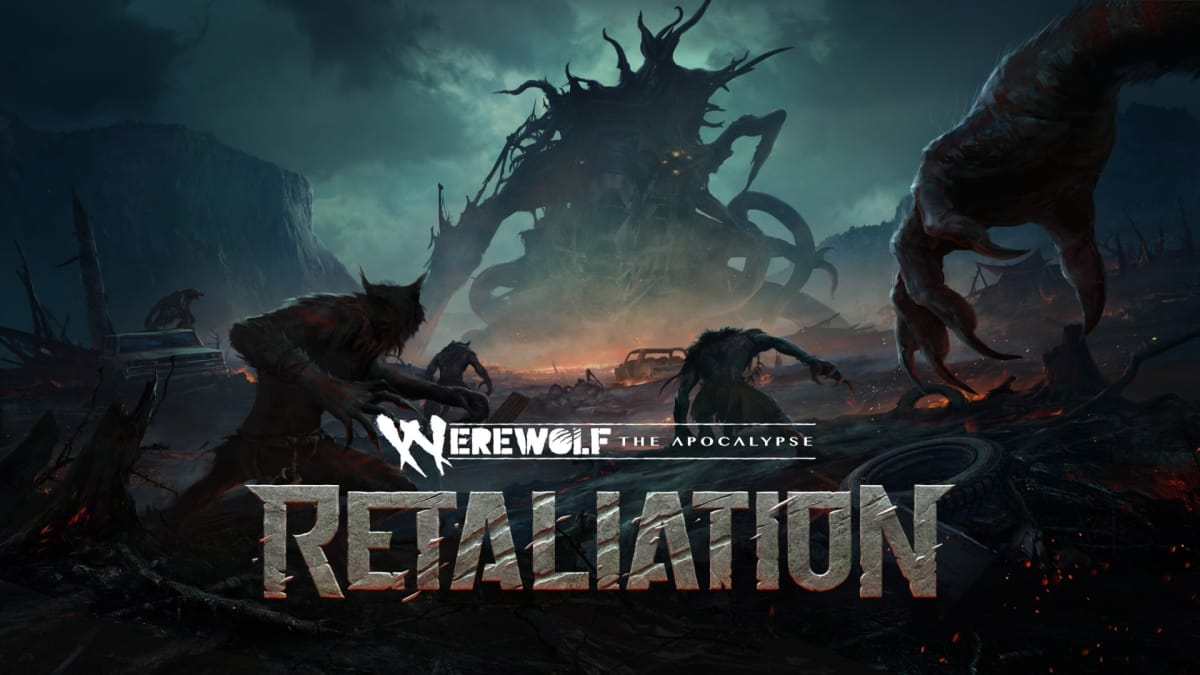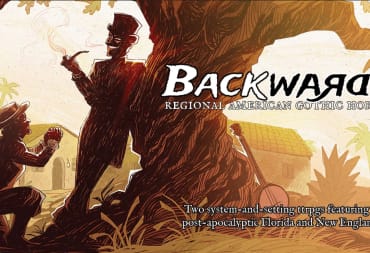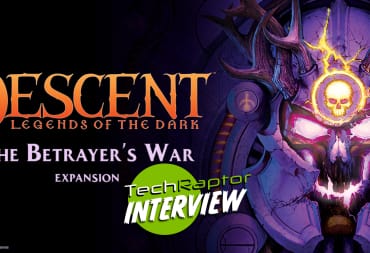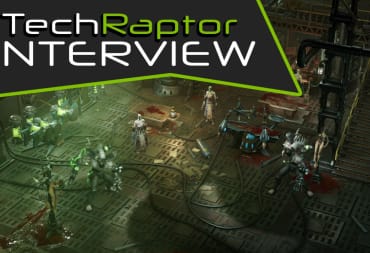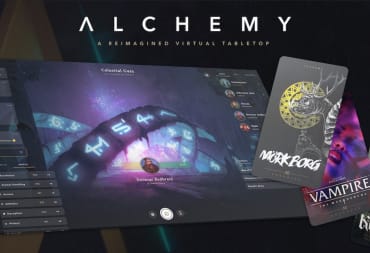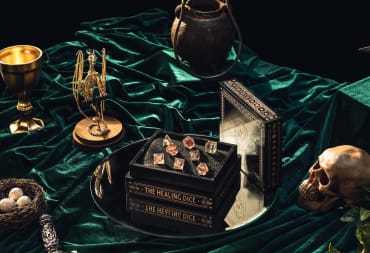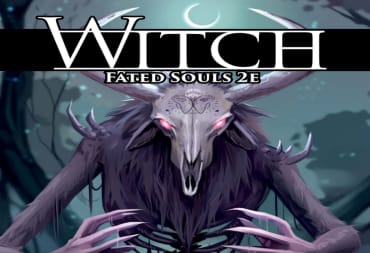A while ago, we learned that board game developer FLYOS would be bringing Werewolf The Apocalypse: Retaliation. Its home page and announcement trailer promoted the game as a narrative-focused role-playing experience about leading your own group of Werewolves on a campaign against the environmental threat of the Wyrm. Considering the increasing popularity of the setting of World of Darkness as well as the increasing prominence board games as self-contained RPG modules, we decided to reach out to FLYOS about the project and learn more about their craft.
Surprisingly, in a complete reversal of “this could have just been an email,” FLYOS' own Thomas Filippi reached out and wanted to speak to us directly through a Zoom call. Almost an entire hour went by as we talked, not just about Werewolf The Apocalypse: Retaliation, but the challenges that go into making such singular experiences, the trials and tribulation of such bespoke game development, as well as how FLYOS' development history has greatly helped shape it into what it is today.
As our conversation started, Flippi mentioned both he and FLYOS as a whole started as massive fans of the RPGs set within Paradox Interactive's World of Darkness setting for a long time. Flippi talked about the time he and his group played Vampire: The Masquerade, but recognized that the sinister world of the Kindred could become very intense with its overlapping layers of political intrigue. Say or do the wrong thing, and your Final Night will come a lot quicker than you think. And while that experience did go on to influence another one of their successfully crowdfunded World of Darkness board game projects, Vampire: The Masquerade – Chapters, they did want to go into a more “raw, epic, brutal” aspects of combat.
“When we were alpha testing, beta testing a lot of the combat, the dialogue, and the investigation on Chapters, we realized that some of the most complex and brutal aspects of the combat, they were definitely not in their place in Vampire. There was more focus on the dialogue, the intrigue, the political aspects. But everything related to the combat? The expertise? The brutality and pack strategy? That makes so much more sense in Werewolf: The Apocalypse. We're pushing all of that extra juice, all of that extra technicality, and meat (heh!), and fun of the combat.”
And pushing the combat forward is the biggest thing that sets Retaliation apart. By Filippi's own account, roughly 70% of the game is combat-focused. He even mentions that it feels more akin to a combat-heavy dungeon crawler, complete with a low barrier to entry and a high ceiling of mastery.
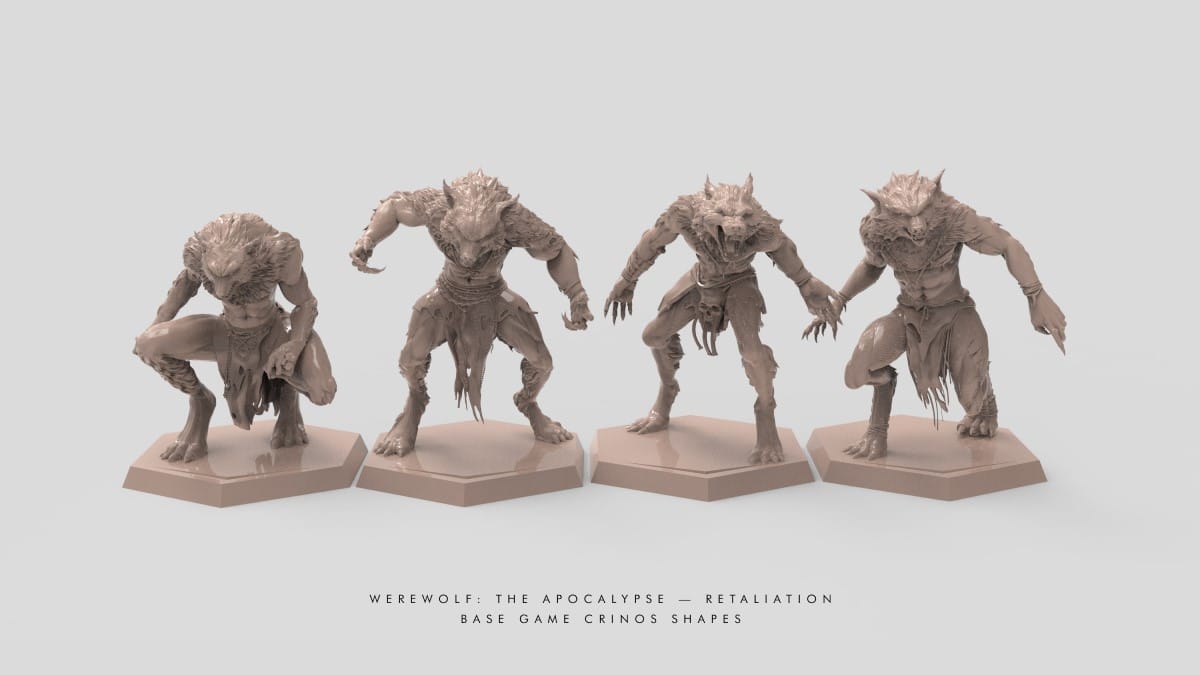
Fillipi briefly discussed some of the depth to the combat in Werewolf The Apocalypse: Retaliation. Specifically, he mentioned the importance of a new mechanic called Pack Strategies. While werewolves are known for their ferocity, they never fight completely alone. One werewolf by themselves is dangerous, but four or five? These are meant to reflect this pack mentality. How it works is once during a scenario, you can call upon the guardian spirit of a specific animal that will give you information about the battlefield. If your group fulfill the spirit's certain demands, your group is granted a major benefit. Filippi didn't cite any specific scenarios or direct ideas at the time of writing since Pack Tactics are still undergoing playtesting, but he did rattle off examples like allowing the entire pack to move silently or find a weakness in an enemy formation. It is a way to help give players tactical options that amount to more than just relying purely on brute force alone. To quote, “It is that going back and forth between that rage and that reason that is fundamental to the dichotomy of the werewolf.”
As our conversation continued, Filippi continued to refer to Werewolf The Apocalypse: Retaliation as being closer to a more narratively rich take on a dungeon crawl adventure module. He went on about how he and his team didn't want the scenarios to boil down to “go here and kill all these guys because reasons.” It was amusing because the inherent appeal of World of Darkness at its conception was in it being an alternative countercultural response to the combat-centric fantasy wargame of Dungeons and Dragons. It's an influence that is still felt, not just in tabletop RPGs but in self contained board games, to this day. It's part of the reason why when fans of World of Darkness see the license used in generic action games or urban fantasy battle royales, there is so much contention; that isn't the foundation on which the series was built. So how exactly would Werewolf The Apocalypse: Retaliation maintain that roleplaying aspect while still indulging in the inherent appeal of bloody claws and teeth?
“For most Werewolf The Apocalypse players I've been in contact with, played with, talked with, most of which are also VtM players, there is a psychological approach to combat that is not present in any other TTRPG. This is purely my two cents, the vision of FLYOS, but there is something in the wolf aspect of being a monstrous monster that wants to defend a world that is on the brink of collapse that is close to what we, as humans are close to. Things are going haywire on a lot of things. How can I help? How can we make a difference? Shall we fight? How? What can we do? What is available here? That is the mindset of the werewolf. It's now. It's always now.”
Filippi went on to explain about how players approached a scenario would lead to consequences going forward into future scenarios. The best analogy he gave was comparing it to fantasy game module. When an elf ranger kills three goblins, that's just a number on a scoreboard. In comparison, a werewolf has killed three people with hopes and dreams and a life. Even in a horror setting like Werewolf The Apocalypse, these people might be tainted by the influence of the Wyrm, but they're not brainwashed. Because of this knowledge, there is both a moral dilemma and an opportunity for great drama. Even in the more recent lore of World of Darkness, that shortsighted rage can be felt on behalf of the werwolves with events like the War of Rage.
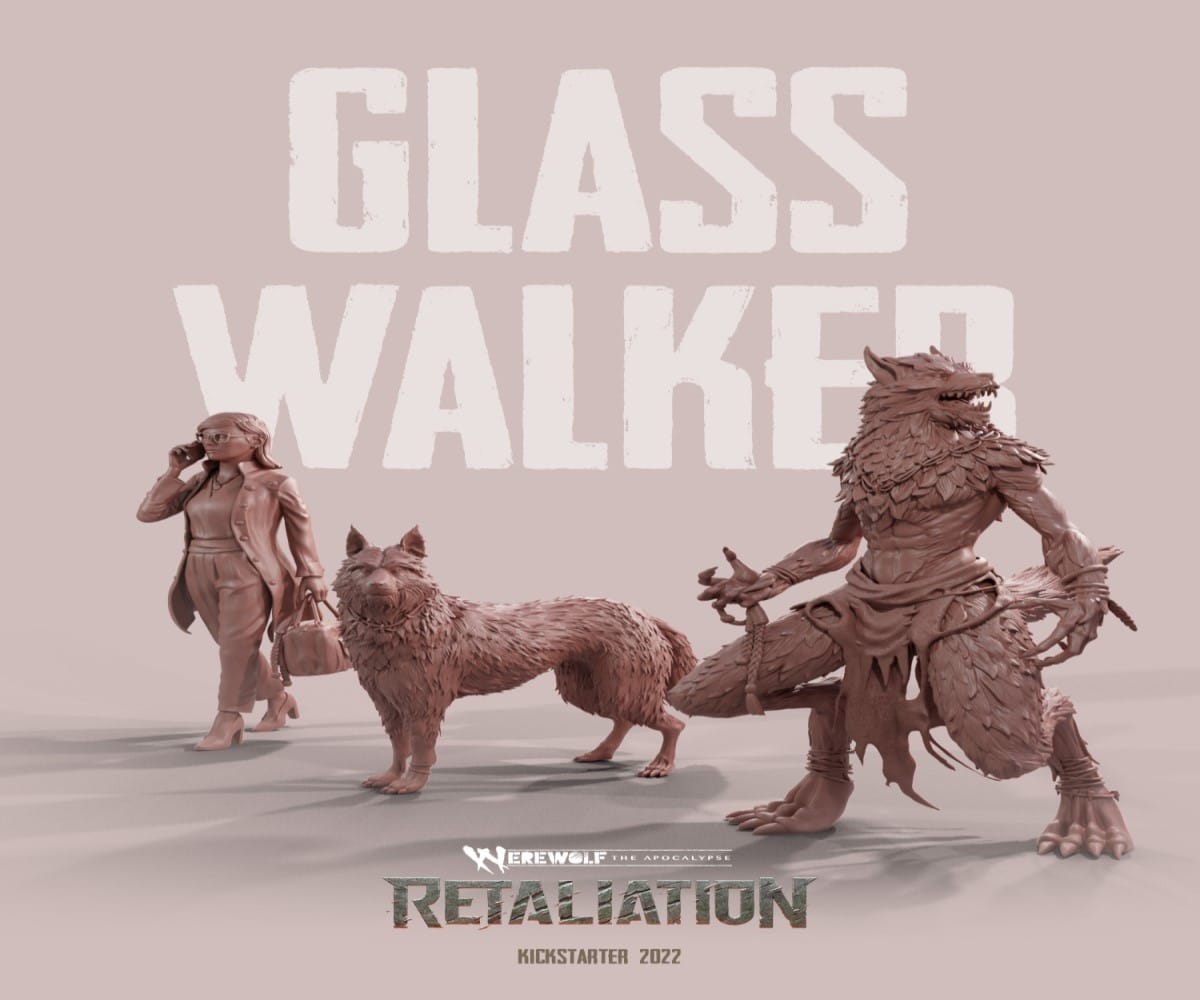
This did lead to another burning question on the tip of my tongue. That kind of storytelling philosophy is great for a communal experience like a tabletop RPG. A savvy GM or Storyteller can tap in to an NPC or subplot the players either organically create or invest in on the fly to make for great emergent moments. In addition, certain plotpoints or story elements can easily be dropped or swept aside based on the interest of an individual group. To quote a bit of sage advice for running any TTRPG, players tend to forget loose ends, but remember closed loops.
But a board game is a singular experience. You can't just throw in additional, maps, miniatures, and narrative cards completely from nothing because a player choose a different path you didn't account for. Alternatively, every single element has to conclude and react accordingly. That is at the heart of why so many big scale narrative board games like Gloomhaven or even Bloodborne: The Board Game are usually crowdfunded passion projects: it takes so much work to ensure every single loose end is not forgotten.
In fact, it was because no major publisher developer had given World of Darkness the same treatment that Filippi's team decided to make these games themselves. While the studio has a few successful crowdfunding projects under their belt, the production of Vampire: The Masquerade – Chapters lead to the kind of opportunity to make the kind of uncompromised board game experience they wanted to see on store shelves, which has helped them move forward with Werewolf The Apocalypse: Retaliation.
As for how much work goes into the “narrative” part of a narrative board game – the branching paths, the dialogue, the different iterations of different storylines – I had to know. Filippi responded, “Do you have an hour to talk about this?” After we had both finished laughing, he talked about how the production of Vampire: The Masquerade – Chapters lead to some innovations due to the complications caused by COVID-19. He mentioned that a special software was created in order to playtest each scenario's narrative path to ensure there were no dead ends or loops or other understandable bouts of human error. Furthermore, it helps the team better understand different plot threads, where they start, the different ways they can progress, and ultimately how they end.
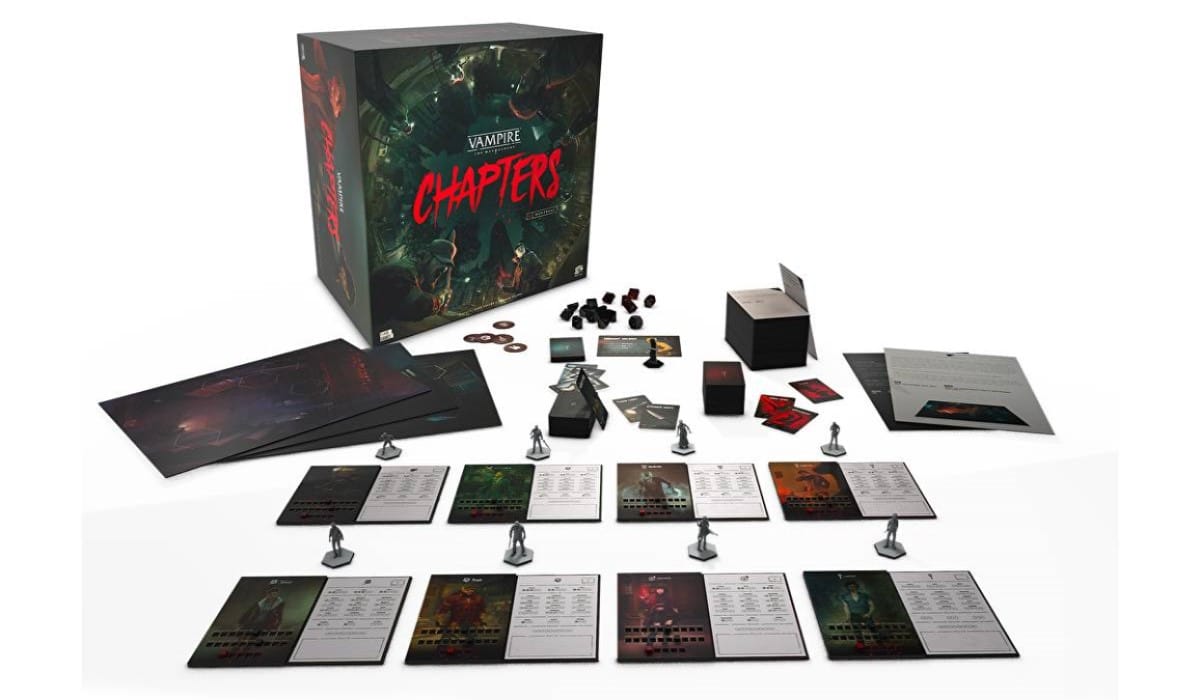
In addition to just wanting to make the game you want to play, Filippi talked about another appeal to these scripted board games: having an RPG experience ready right out of the box. Even taking into account the convenience of digital tabletop platforms and online voice chat, sometimes life just gets in the way. Players get sick, or the internet goes out, or personal schedules don't align. Enter games like Chapters and Werewolf The Apocalypse: Retaliation.
Inevitably, our conversation came to the many issues plaguing tabletop game production. In addition to the logistical issues that come from shifting work environments and office cultures in response to COVID-19, there was also the logistical issues caused by the global shipping crisis. Fillipi talked about how a lot of the increased shipping costs have been by companies either trying to brute force their way through these complications with rising costs, effectively betting against one another for a more expedient experience, and charging their customers for the privilege. As for his take on handling such an issue, Filippi talked about the importance of transparency and patience over pushing this paradigm of “betting” on which freight will get through first. “You can do what you can but you cannot outsmart a logistical issue, a pandemic that hasn't happened in terms of impact for 100 years. You cannot outsmart this.”
As an aside and on that topic of transparency, Filippi mentioned the virtues of FLYOS' own newsletter. Almost immediately, he assured me that this wasn't a standard company newsletter sent out to users that goes directly to spam about two dozen games you have no interest in. Instead, they go for something else that they call a Yearly Newsletter. To quote him directly, “We don't like to send out newsletters. It takes a lot of time. We don't like to spam things. We call out the Yearly Newsletter, where we send or one or two e-mails per year, that's it.”
As for how Werewolf The Apocalypse: Retaliation's Kickstarter campaign will be handled, Filippi did discuss that things will be different compared to VtM – Chapters. While he wasn't comfortable giving a set release date for when the campaign will go live, stretch goals will be switching to smaller, daily updates with small gifts as opposed to major benchmarks. On top of that, the duration of Werewolf The Apocalypse: Retaliation's campaign will be much shorter. As to why, Filippi said this,
“Launching a Kickstarter is the most thrilling and exhausting experience. If you go for two weeks, three weeks, a month, you pretty much have the same results now. If you are able to move your community very fast, it doesn't make any difference. So we're going to go short and sweet.”
Filippi continued on about keeping FLYOS' dedicated community involved through more direct collaboration like working with artists to create characters or items. What does a character's wolf form look like? Their gender expression? This will be part of the active development, not just an option on a character sheet but part of the miniature associated with the character as well.
But while FOMO and the idea of having a say in production are powerful tools for promoting an experience, there is an even greater one that FLYOS will be tapping into: word of mouth. Werewolf The Apocalypse: Retaliation will be receiving demos across Tabletop Simulator, Board Game Arena, and Tabletopia. This will feature the first two scenarios of the game, effectively an extended tutorial showing off mechanics like Pack Strategies, Auspices, Rage, etc.. As much effort as it is to get those games on to those platforms, that can only help expand your audience and bring in new players.
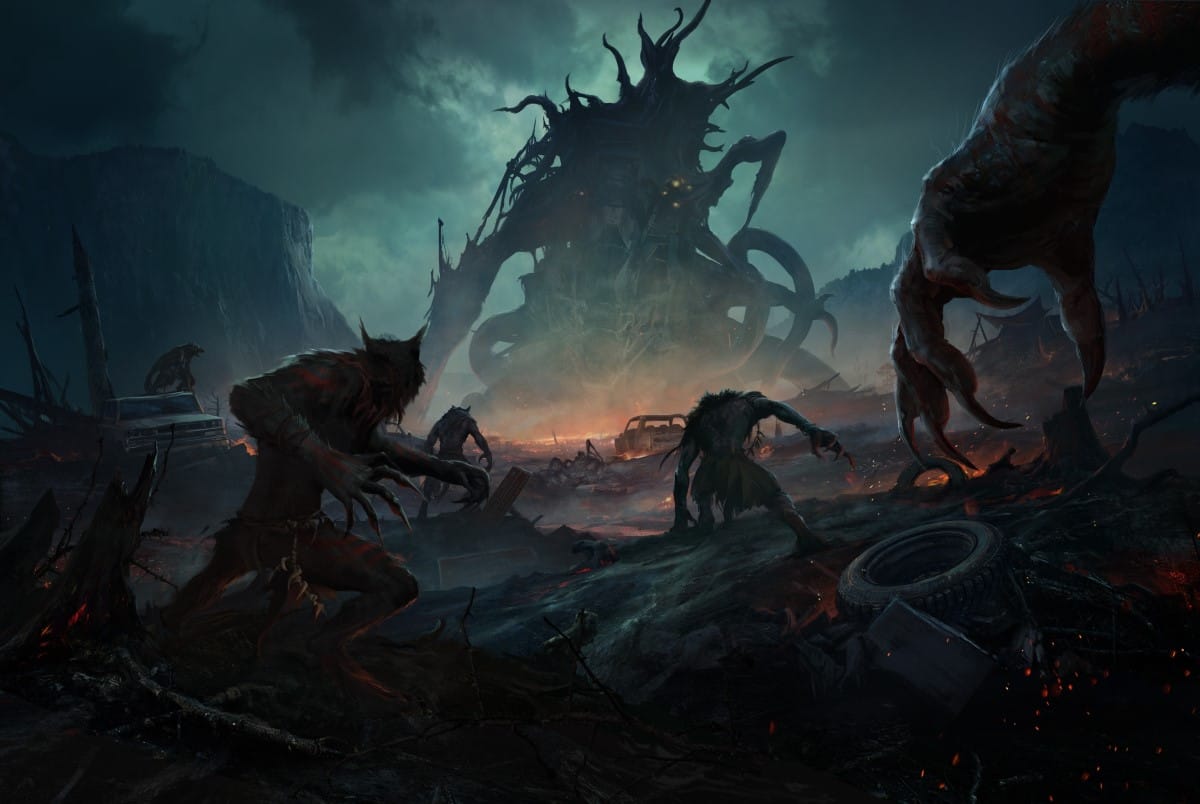
As our conversation came to a close, it was very clear that Filippi and FLYOS were truly passionate lovers of the power of gaming and the communal delights of board games. His team has managed to keep a consistent level of quality with their products and have managed to work through some tough times. As for the rising popularity of things like World of Darkness, Dungeons and Dragons, and board games, Filippi thought it was bound to happen considering the fallout of current events:
“There is no misconception about why the tabletop industry has been growing that much since the 2008 financial collapse. Everyone had less money and was afraid of what would happen. And what would happen is the idea of 'I still need to entertain myself, but I need to choose a better entertainment medium.' It's why video games exploded. It's why board games also exploded. You cannot outsmart and outspend a $40 board game that you're going to play for years. The ratio of dollars spent per hour is minimal compared to going to the theater or going to a restaurant or buying any other kind of media. You're going to play that game on and on again with different people.”
The Kickstarter campaign for Werewolf The Apocalypse: Retaliation has not gone live as of writing. The link to FLYOS' newsletter can be found here.
Have a tip, or want to point out something we missed? Leave a Comment or e-mail us at tips@techraptor.net
